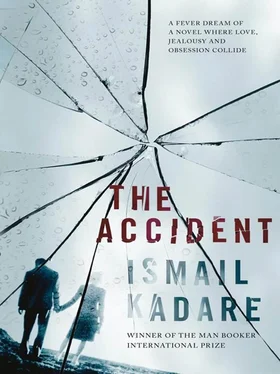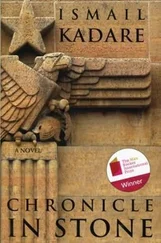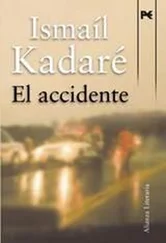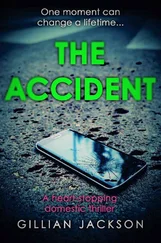In another note, the researcher strove to explain what he called the strange “crabwise” progress of the days and weeks. Mourning customs everywhere mark seven days and forty days after a death, but here were periods of seven and forty days calculated before their deaths. These in his view were intended to convey an impression of the reverse order of time experienced by the two lovers, if that is what they could be called.
As he approached the zero hour, which in this looking-glass world could have been the end, the beginning or both, or neither of these, the researcher probably felt a rising panic. Finally, confronted with a knot he could not unravel, he stood to one side at the most unexpected moment.
It was obvious from the file containing the relevant evidence that this dereliction of duty when faced with the final week caused the researcher great pain. Here, totally jumbled and impossibly crammed together, were fragmentary statements and testimonies, documents, protocols; a twice-repeated request for an autopsy of Rovena’s body rejected out of hand by her parents; an application for Besfort’s exhumation in Tirana, which had been granted; an allegation made by Liza Blumberg that Rovena was murdered not by intelligence agencies but by Besfort Y. on the night before 17 May; a photocopy of the weather report for the fateful morning from the newspaper Kurier , which was relevant to this allegation; and finally the permission for three days’ leave, issued in response to Besfort’s last request in this life.
The researcher kept coming back to this document in the hope that it might yield more information. He could not forget what a colleague had said a long time ago, when he had first mentioned the inquiry to him. In such cases of law, the English refer to remote history, Muslims to the Qur’an and emergent African states to the Encyclopedia Britannica , but in the Balkans they find every precedent with little effort in their ballads. Three days’ leave to carry out a duty, normally something left undone? There will certainly be a well-known paradigm for this.
It was in fact a cliché. Half the ballads of the Balkans included such requests. Every character seemed eager to negotiate an extended deadline. Some bargained with death; others at a later date in history, and thus on a less epic scale, asked for leave from prison. And so on until the present day, when Besfort Y. had asked for leave from his office at the Council of Europe. The cases were very different, but in essence they all shared something in common: a secret contract, from which there was no escape.
The researcher was dumbfounded. According to the experts, Besfort had asked for three days’ leave from the Crisis Department in Brussels, just like Ago Ymeri had done from a medieval prison.
The researcher imagined Ago Ymeri on horseback, galloping to the church where his betrothed was about to marry another man… He had never heard such an inconsistent story: why had he been given leave, and why, after its expiry, was he bound to return to prison? The meaning must be encoded.
The researcher felt a sickening pang in the pit of his stomach. What help were all these shadows and shapes that so resembled each other? He thought about the taxi driver and his rear-view mirror, in which the mystery had surely been revealed, if only for an instant of time.
Latterly his researches had focused entirely on this question. “What did you see in this mirror? What was that fatal shock? Have you ever lost someone you can’t ever forget? Who is so lost to you that they won’t come back, even in your dreams?”
So began one of their many conversations, all so similar to each other.
“Who won’t come back, even in my dreams? I don’t know what to say,” the man replied.
“You have a daughter of about the same age as that unknown young woman who got into your taxi. Have you ever had problems with her? For any private reason of the sort you would never reveal to a soul? That will go with you to the grave? I think you will have heard this expression, but probably without thinking hard about it. Imagine what it means to be in the grave, in this narrow chamber not just for a few days or weeks or years but for centuries, millennia, hundreds and thousands of millennia. Just you two, you and the grave. The grave and you. Narrator and audience. The stories we tell on earth are mere fragments, crumbs of the great narrative of the dead. For thousands of years, in hundreds of languages, the dead have been weaving their story. But it will remain in the grave for ever and ever. For all eternity, never heard by a living soul. Your final confidence, between you and the grave. Between the grave and you. Think of yourself there, with no advocate, no witness, afraid of nothing, because you yourself are nothing. Think of yourself like that and give me the tiniest hint, a smidgen of what you will tell to the grave. This is what I am asking you to do as a human being, a taxi driver. Do me this honour. Think of me for a moment as your brother. As your grave.”
“I don’t understand you. I’m tired. I’m so tired. I don’t know what you want.”
“Have you ever thought of impossible things? Taboos, we call them in this world. Who knows what they call them in the next. It’s a tough question, but I won’t apologise. The grave does not apologise.”
“I’m tired. Leave me in peace. The doctor says these long sessions aren’t good for me.”
“You’re right. Calm down. Let me ask you just two simple questions about the last moments before the accident. How did her face look? And his?”
“They were both cold. Or that’s how they looked to me. Like wax, as one might say.”
“Was it this that scared you, I mean confused you?”
“Perhaps.”
“What else? What else happened?”
“Nothing. It went silent, like in church. Except that from outside there was a sort of dazzling light. I think that’s why I couldn’t see the road. The taxi seemed propelled through the air.”
“You said that at that moment they were trying to kiss. I’m sorry for asking the same question as everybody else. Did this really startle you? Even scare you?”
“It seemed… but they seemed scared themselves. At least I saw that in the woman’s eyes. In the mirror, I saw fear.”
“You saw their fear in the mirror… But your own fear, where did you see that?”
“I don’t understand you.”
“Your own fear,” I said. “The fear that your thought was theirs, wasn’t it really your own? Have you yourself ever wanted to break a taboo of that kind? And did they remind you of this. Is that why you lost control and crashed?”
“I don’t understand. Stop tiring me.”
“Calm down… and then? What happened next? Did they manage to kiss?”
“I’m not sure. I don’t think so. That was the moment of impact. Everything was smashed to pieces in the gully. The light was blinding. Devastating.”
Each time the researcher left the taxi driver, he had a feeling that something had been left unsaid. He could hardly wait to return, to try again. Next time, he thought, he would make no mistake. The driver held the answer. He would have to give up all his philosophical speculations about two sorts of love, the old one, dating back millions of years, which operated within the tribe, and the new rebellious one that had broken out of that prison. Let others deal with the rivalry or alliance between these two sorts of love and the hopes each of them nourished of treacherously supplanting the other, when the time came. This was a mystery involving the old devices of the world, which from one millennium to the next, in semi-darkness, had shaped the savagery of tigers and the soul’s lusts, pity, shame or hours of peace. He had nothing to do with these things, or with ballads, ancient or modern. His business was with the driver, who perhaps imagined that he had got off scot-free and was out of his clutches. And he had every right to think this as long as the researcher had still not put the fatal question: was he an accessory to murder or not?
Читать дальше












